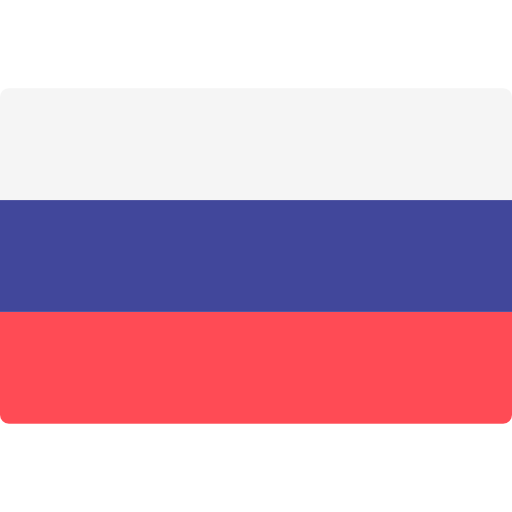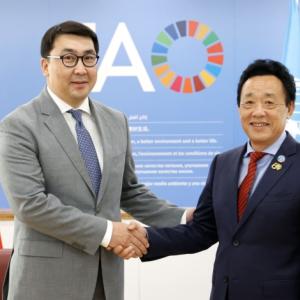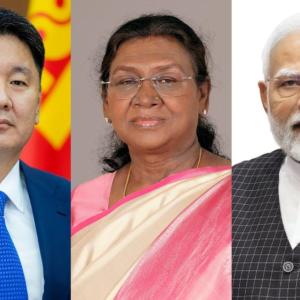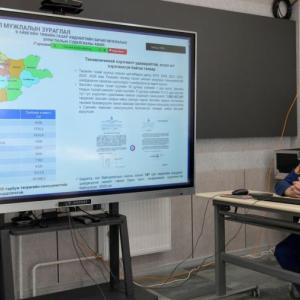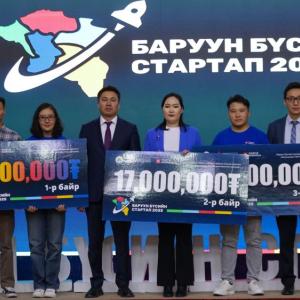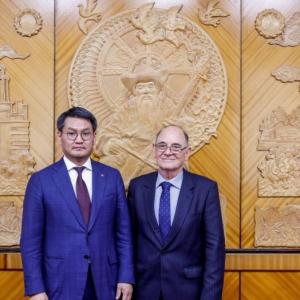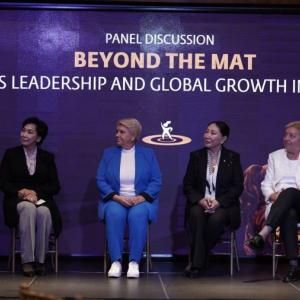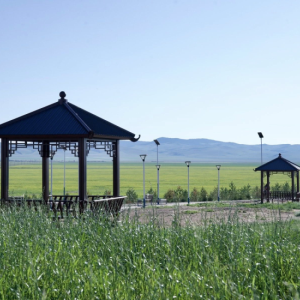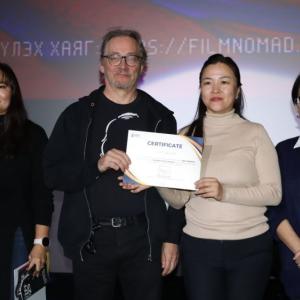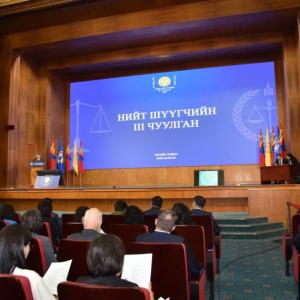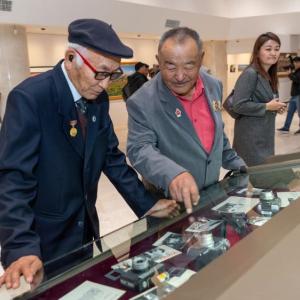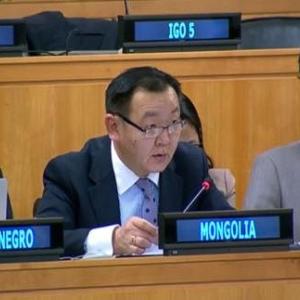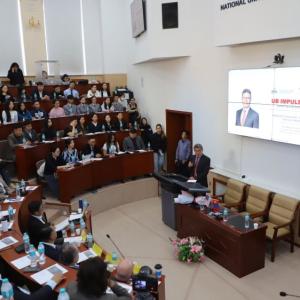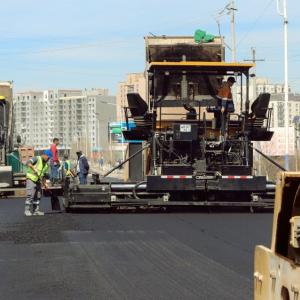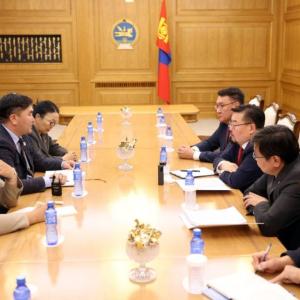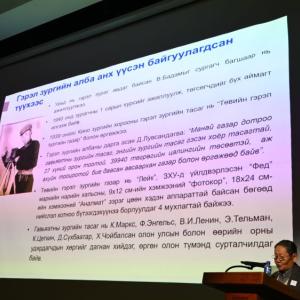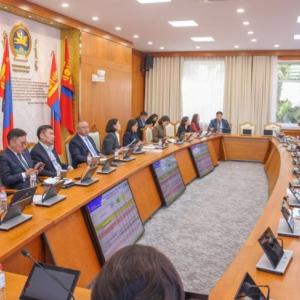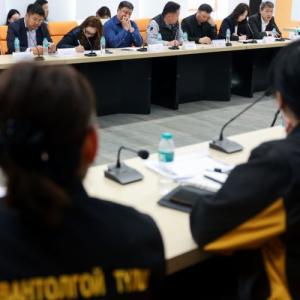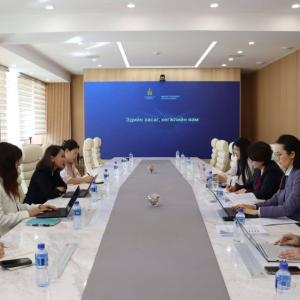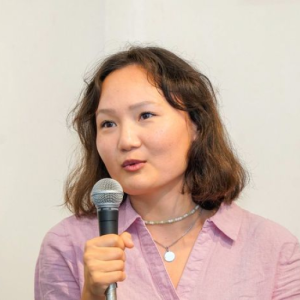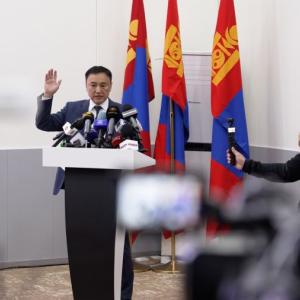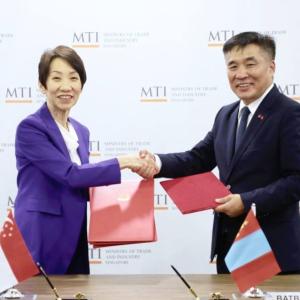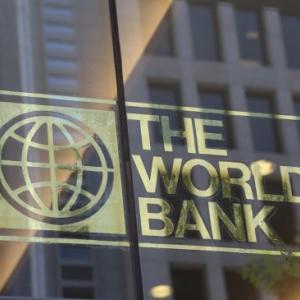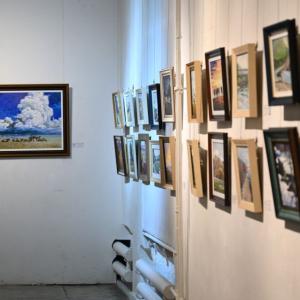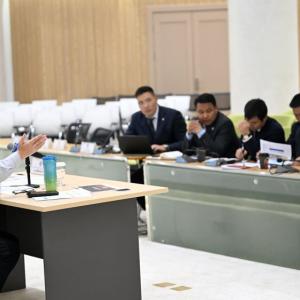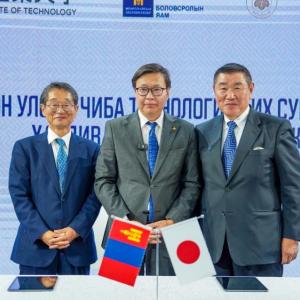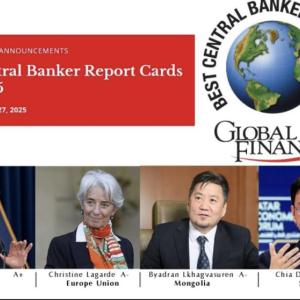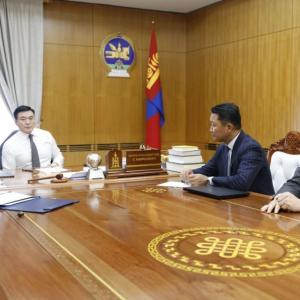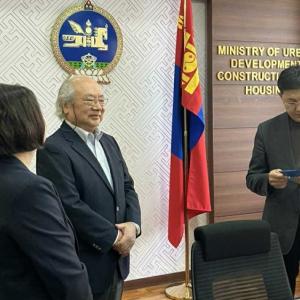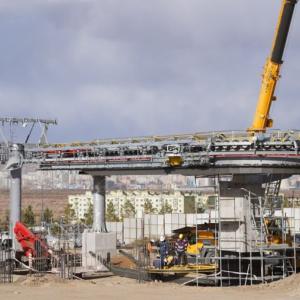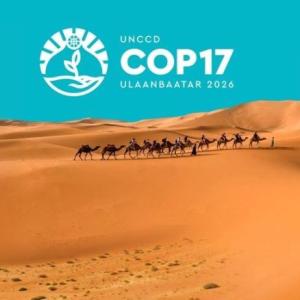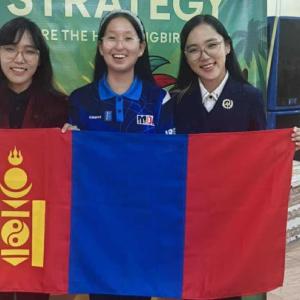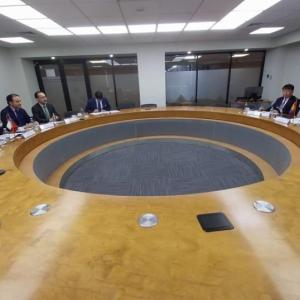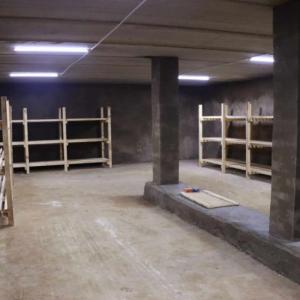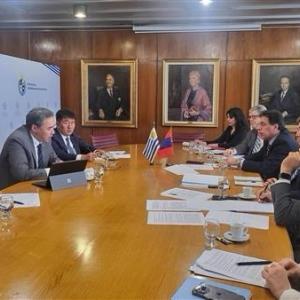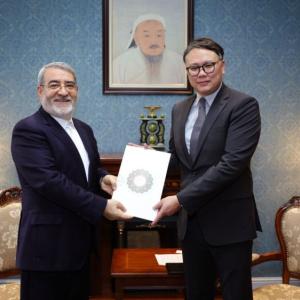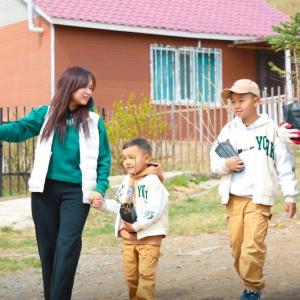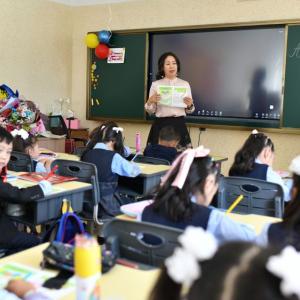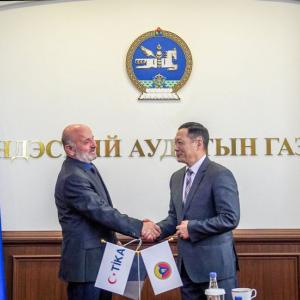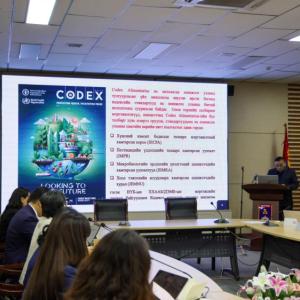Central Asian Journalists Convene in Kyrgyzstan
Society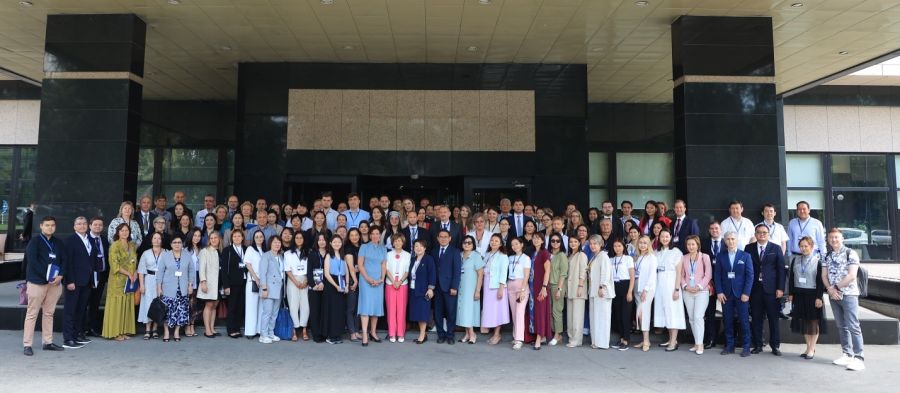
Ulaanbaatar, July 21, 2023 /MONTSAME/. The Organization of Security and Co-operation
in Europe (OSCE) organized the 24th Central Asia Media Conference on July 06-07
in Bishkek, Kyrgyzstan, bringing together journalists, representatives of relevant
state authorities, policymakers, media and legal experts, and researchers from
both Central Asia and other parts of the world. From Mongolia, representatives
of MONTSAME National News Agency, the Ministry of Foreign Affairs, the National
Human Rights Commission, the Judicial Disciplinary Committee, the Media
Council, GoGo.mn, and Glob International Center attended the Conference.
The intrinsic connection between media freedom, democracy, and common security necessitates multi-sectoral dialogue and collaboration to drive positive change in our societies. The 24th Central Asia Media Conference, hosted by the Office of the OSCE Representative on Freedom of the Media, addressed the challenges faced by the media landscape in Central Asia and work towards fostering media freedom and democratic principles in the region under the theme "At a Crossroads: Safeguarding Media Freedom to Protect Democracy."
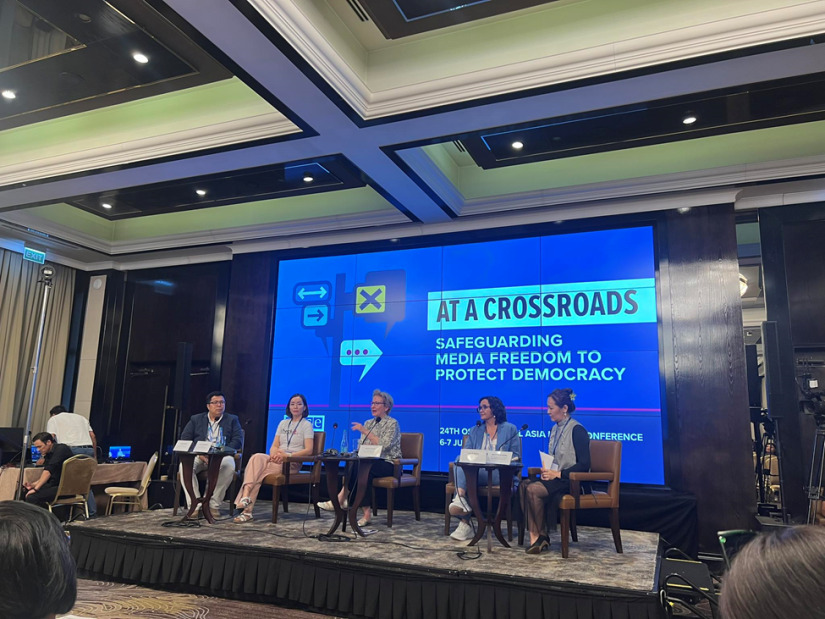
Several parallel
sessions explored the following topics:
- Countering disinformation while
safeguarding media freedom: Disinformation is plaguing our media and our
societies, more than ever before. Countering it, however, is not an easy
task. There is a delicate balance between security considerations and
media freedom as a central pillar of our democratic societies. The session
explored how to tackle this international problem with a multi-sectoral
approach, to increase awareness of and enhance resilience to
disinformation. Representatives of Mongolia, Uzbekistan, Kyrgyzstan, and
Kazakhstan participated in this parallel session and shared the
experiences of fact-checking organizations, how they deal with
misinformation in their countries, and what legal regulations apply. At
the end of the session, the participants agreed that it is important to
impose responsibility on those who spread false and misleading information
and to establish more independent organizations that verify the
authenticity of the information.
- Freedom of expression and AI:
The online information spaces are ever more shaped and arbitrated by platforms
and digital technologies, including artificial intelligence (AI), which
has a large impact on freedom of expression, media pluralism, democracy,
and comprehensive security. This parallel explored regional implications
and identify policy responses to safeguard access to reliable, diverse,
and public-interest information in the digital age.
- Privacy, protection of
journalistic sources, and digital safety: The fast-paced digital
environment often poses challenges with regard to the privacy, confidentiality,
and safety of journalistic sources. These challenges include surveillance,
threats to encryption and anonymity, and national security/other
legislation with an impact on the protection of journalistic sources. The
session focused on the legislative and practical issues with these
challenges, as well as internet throttling and shutdowns.
- Safety of journalists:
Mechanisms and tools for protection: Throughout the Central Asia region,
journalists continue to face attacks, online threats, and harassment,
including of gendered nature, in connection to their work. This session
dove into regional trends, current challenges, and persisting gaps, while
mapping recent response efforts, including legislative measures, and other
mechanisms and tools, for enhancing the protection and safety of
journalists, and combatting impunity. During this parallel session, Elira
Turdubaeva, the President of the Association of PR Communicators,
Kyrgyzstan, presented the survey findings, that were conducted among
female journalists working in the media industry of four countries in the
region. As stated in the findings, for example, women journalists in
Central Asia are mostly targeted by online attacks, especially on
Facebook. Anonymous or unknown trolls are the main perpetrators of online
attacks or violence. Gender is most likely to provoke online attacks
against self-selecting females. Even their family members face online
attacks. “You should be thick-skinned” is the most common response the
women journalists receive from their employers. Last but not least, the
survey findings shed light on the importance of journalists' mental health
in general. The Communications Officer of Globe International Center of
Mongolia also presented the survey results at this session. According to
their survey involving 240 urban and rural journalists of Mongolia, 95% of
the participants responded that they felt psychological pressure and
stress somehow.
- Hate speech: Hate speech can
seriously undermine social cohesion, pluralism, and peaceful co-existence
in diverse societies. With the emergence of new digital technologies in
recent decades, it has become a viral phenomenon across the Central Asia
region and beyond. While important to counter, legal responses should be
carefully balanced and must not be misused to suppress open democratic
debate on sensitive or controversial issues of public interest. This
parallel session explored what constitutes the notion of hate speech in
the region and where the line is drawn between “prohibited” and “allowed”.
- Journalism representation:
Media self-regulation in Central Asia: Looking into media self-regulation
(MSR) in Central Asia region, its current status and ways forward. The
speakers and participants shared experiences and best practices on how to
strengthen the role of MSR bodies in upholding ethical standards in
journalism in the digital age. It is evident from the presentations of the
countries that a media self-regulation organization is relatively well
developed in our country and has reached a level that can be used as a
benchmark for other Central Asian countries. At the end of the session,
media self-regulation organizations of Mongolia, Kazakhstan, Kyrgyzstan,
and Uzbekistan signed a Memorandum of Cooperation.
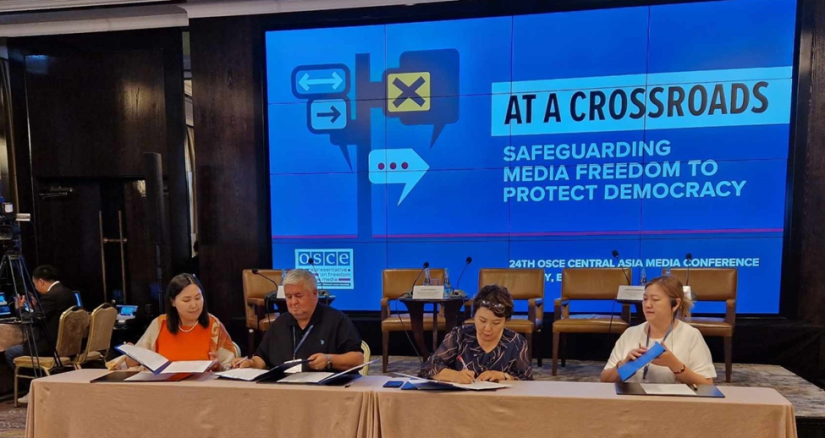
- Media and digital literacy initiatives: We live in an increasingly saturated and invasive information ecosystem. To be able to navigate, media and digital literacy are an essential constellation of skills – necessary for freedom of expression and access to information, and for building pluralistic and well-informed democratic societies. Media literacy is crucial because it helps people understand the messages that are being communicated to them. With so many sources of information today, media literacy can help people identify reliable sources and filter through the noise to get to the truth. According to the National Association of Media Literacy Education, media literacy encompasses a range of competencies, including analyzing the content and critically understanding the underlying messages. In this context, this session explored inspiring and impactful regional projects and initiatives in Central Asia and internationally that contribute to citizens to better understand of the role of media and think critically about the news they receive. For instance, Kazakhstan and Kyrgyzstan have included media literacy in their secondary and high school curriculum as optional or compulsory courses. The initiative has already yielded results, especially in Kazakhstan. A survey conducted among the 6500 8th-grade students showed that 61% have high media literacy.
Additionally, the conference featured various side events, including discussions on the legal aspects of journalist safety, an AI masterclass, a movie screening, and an interactive workshop.
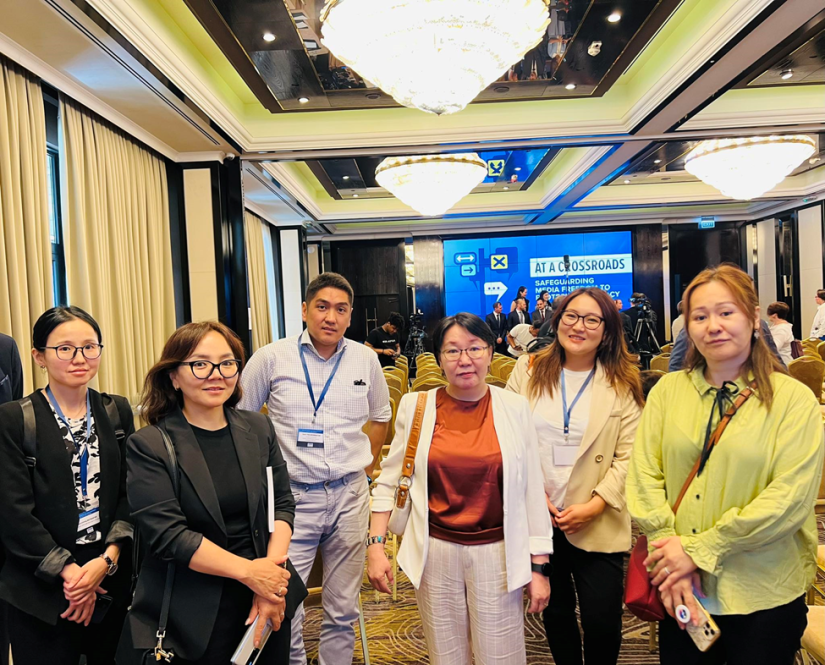
 Ulaanbaatar
Ulaanbaatar








